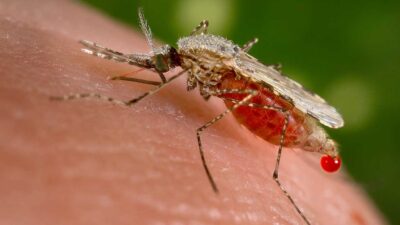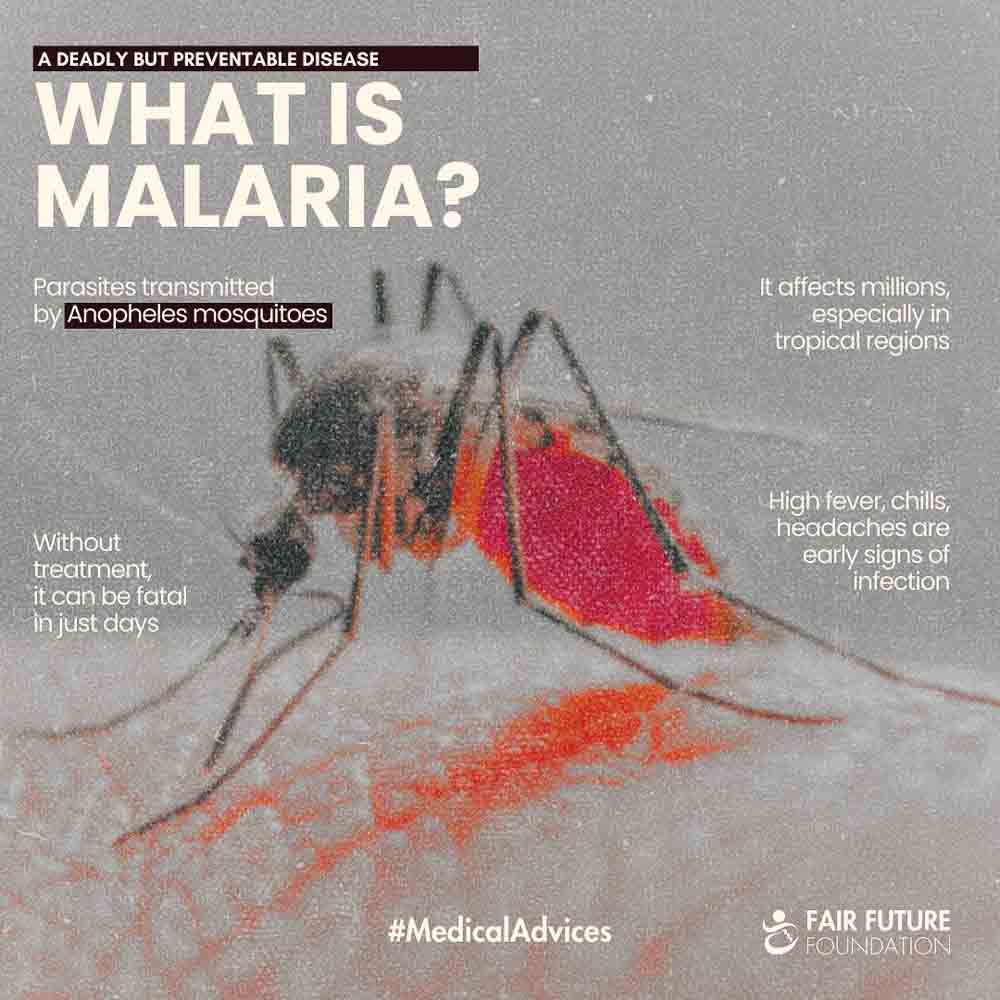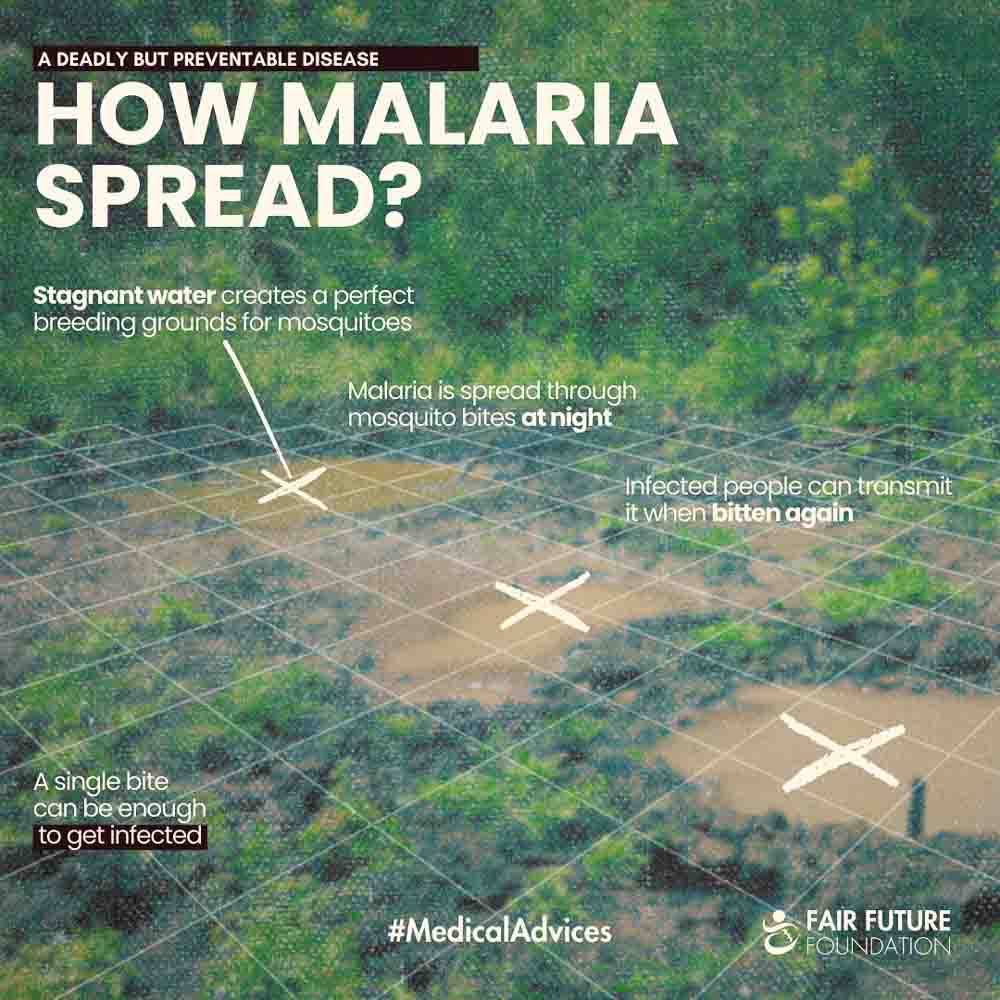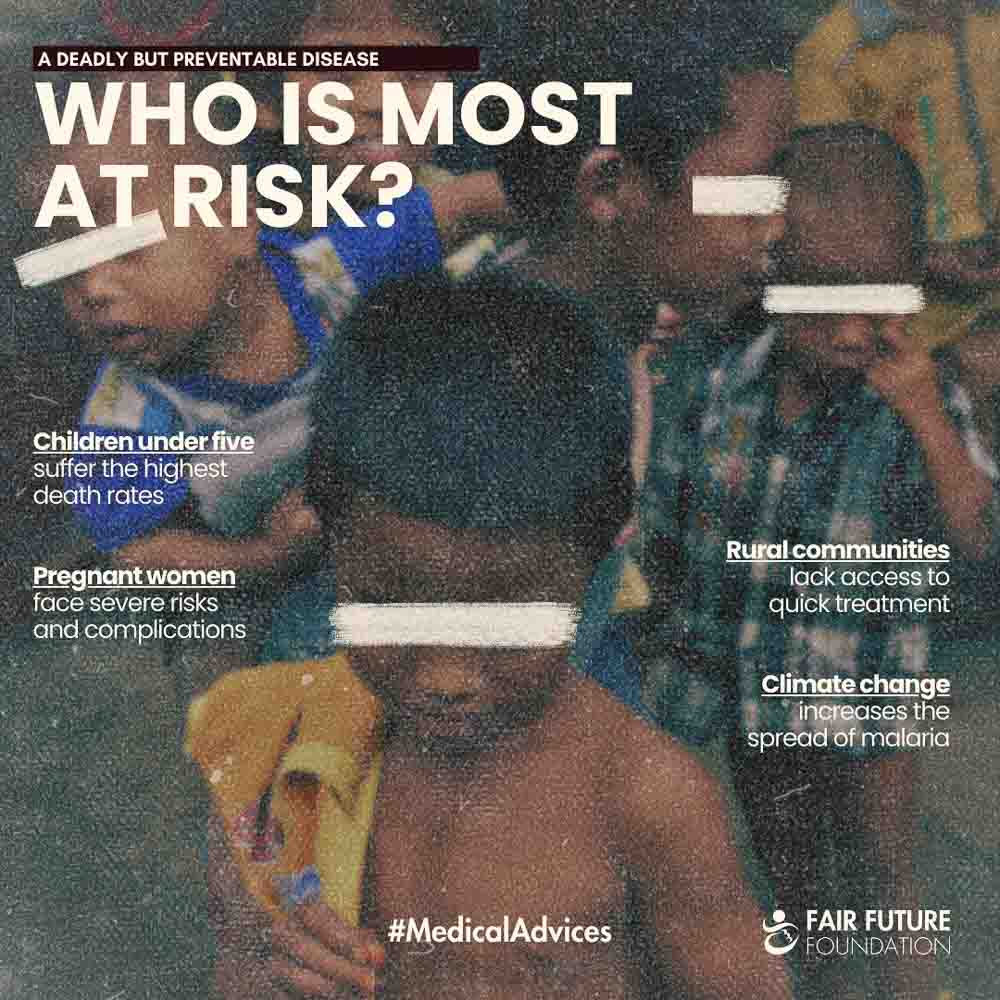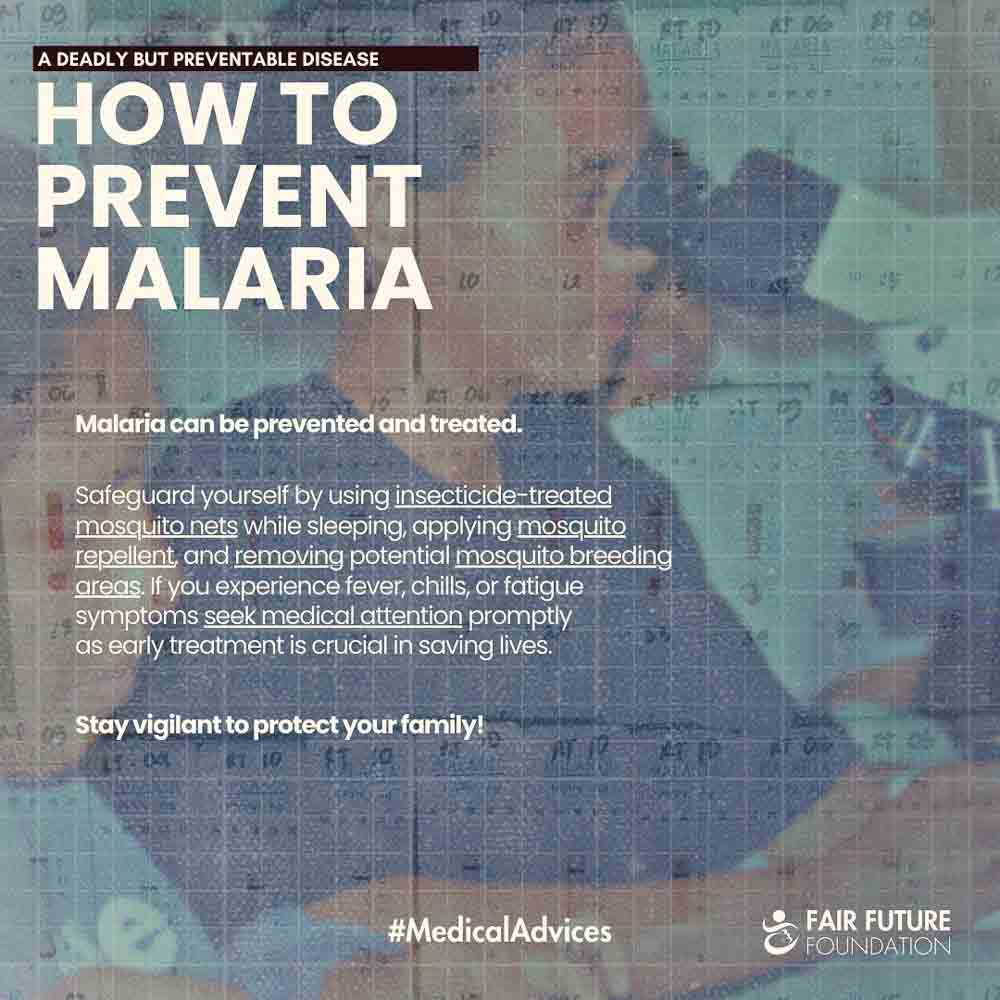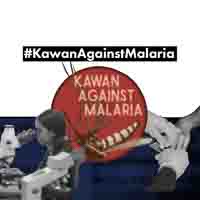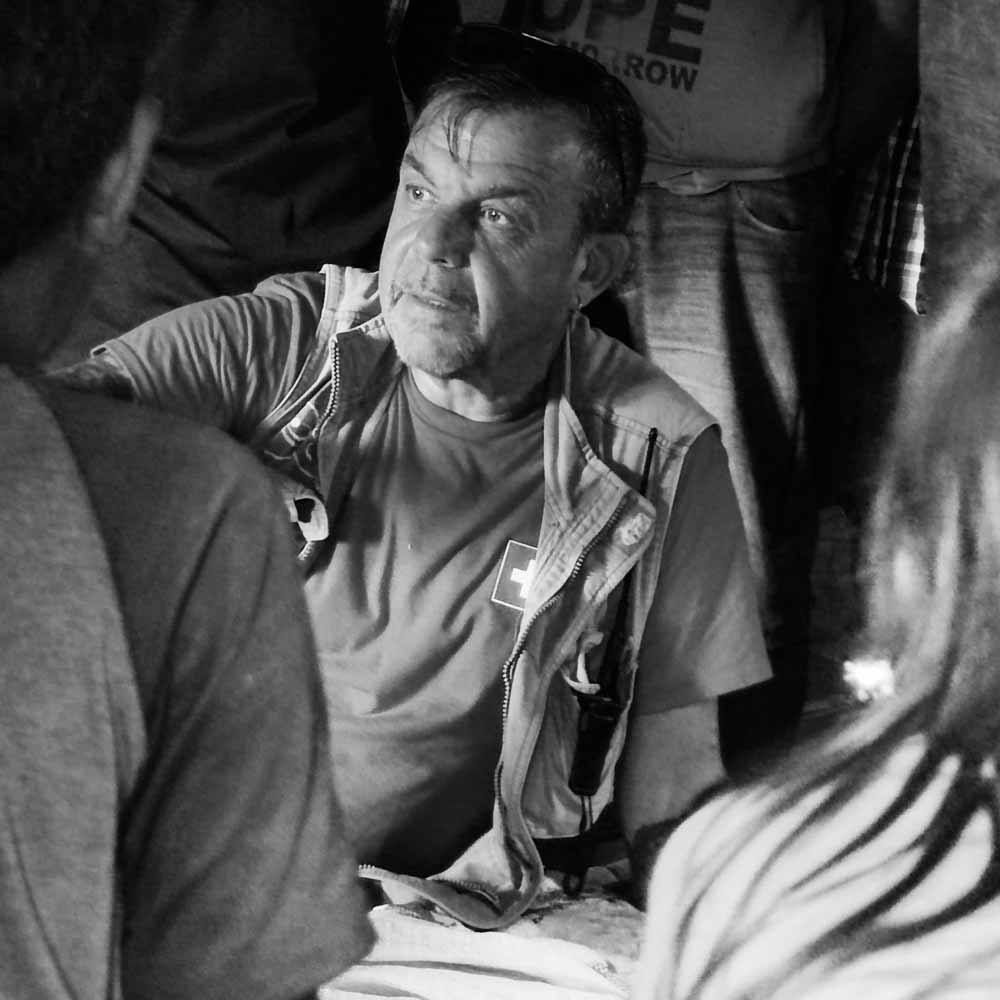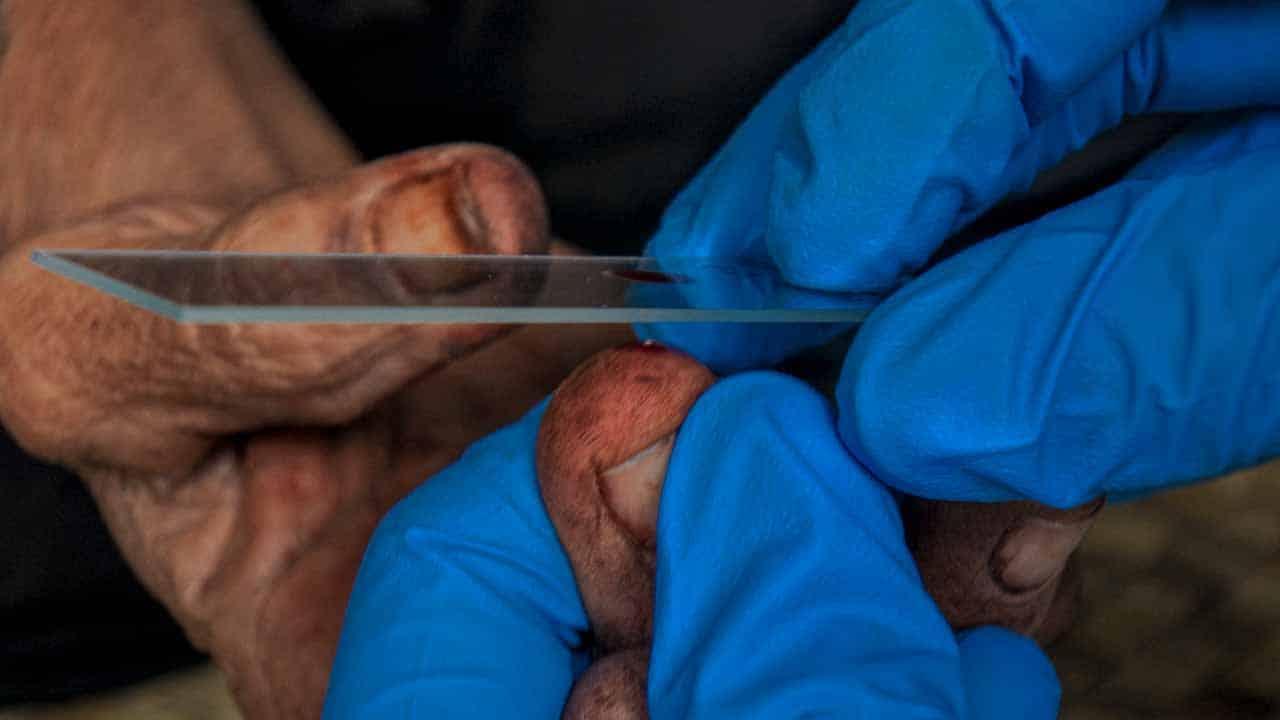Malaria Explained and Prevented with Local Health Agents in Indonesia’s Remote Communities
Fair Future combines education, nets, and field care to fight malaria where help is rare
When Malaria Strikes Silently
In East Sumba, malaria enters silently—through mosquito bites—and if untreated, can kill within days. For families we serve, it’s a daily, invisible enemy. A child’s fever is never just a fever. A mother’s exhaustion could signal a warning. Malaria is common, yet rarely seen until it’s too late.
But malaria is not inevitable. It is deadly, yes, but preventable.
Malaria is caused by Plasmodium parasites transmitted through female Anopheles mosquitoes. Among the five species infecting humans, Plasmodium falciparum is the most lethal in East Sumba. It silently attacks and progresses rapidly, causing high fever, chills, vomiting, and in severe cases, organ failure or death. Children under five, pregnant women, and those with no prior exposure are most at risk.
The incubation period for malaria, typically seven to 30 days, allows the disease to progress unnoticed until severe symptoms arise. Early diagnosis through Rapid Diagnostic Tests (RDTs) is crucial for swiftly identifying Plasmodium falciparum, ensuring timely antimalarial treatment like artemisinin-based combination therapies (ACTs). Yet, access to these vital tools remains an issue.
The tragedy is not just the disease—it’s that so many deaths are avoidable.
Simple measures can save lives: sleeping under insecticide-treated nets, wearing long sleeves in the evening, using indoor residual spraying, and taking preventive treatment when advised. These essential tools are often absent in remote villages where healthcare is scarce and knowledge is limited.
That’s why we created the Kawan Against Malaria program. Collaborating with Kawan Baik Indonesia, we train health agents in ultra-rural areas to identify symptoms early, educate families, and deliver life-saving interventions. These agents are often the only line of defence between a child and a distant hospital.
Fighting malaria is not just medical—it’s social. It requires trust, education, and access to the right tools. It means helping mothers understand when a fever is dangerous and ensuring a net is hung every night. It means training local women to empower their communities.
For example, distributing long-lasting insecticidal nets (LLINs) is crucial in reducing malaria transmission. The World Health Organisation emphasises their use as part of an integrated vector management strategy.
The fight against malaria begins with awareness, continues with action, and ends only when prevention becomes a reality for everyone, not just those who can afford it.
We won’t stop until every child can grow up without fearing mosquito bites.
- Preventing Malaria—Simple Steps to Stay Safe: Download this poster in English here or in Bahasa Indonesia here.
- Recognising Malaria Symptoms – A Life-Saving Guide: Download this poster in English here or in Bahasa Indonesia here.
Today, May the 14th, 2025 – Alex Wettstein
Malaria – A Silent Killer We Can Stop
Every year, malaria claims hundreds of thousands of lives, primarily children under five. It starts with a mosquito bite, then fever, and then danger. However, it doesn’t have to result in death. This disease is both preventable and treatable. Awareness, early action, and access to care can transform fear into survival. No one should die from something we know how to prevent.
About this topic on our Instagram page
List of Related Organisations with Hyperlinks
- Malaria Consortium: Like Fair Future, it focuses on delivering malaria control and prevention programs in underserved regions.
- Doctors Without Borders: Its medical teams often treat malaria in emergency settings, similar to Fair Future’s rural operations.
- PATH: PATH innovates tools and diagnostics for malaria elimination, echoing Fair Future’s emphasis on grassroots solutions.
- Against Malaria Foundation distributes insecticide-treated nets to prevent malaria, a practice also central to Fair Future’s local programs.
- UNICEF: Works in child health, including malaria prevention—an effort aligned with Fair Future’s child-centred healthcare in rural areas.
- Rotary Against Malaria: A close partner of Fair Future, Rotary supports prevention efforts like bed nets and malaria studies.
- RBM Partnership: It unites partners to end malaria faster. Fair Future shares its urgency and field-based mission.
- World Health Organisation guidelines inform Fair Future’s prevention strategies and community health education work.



